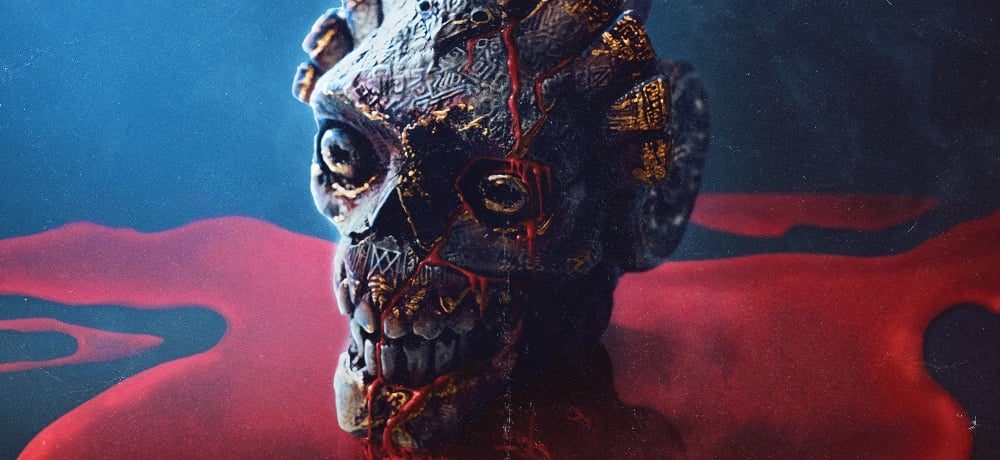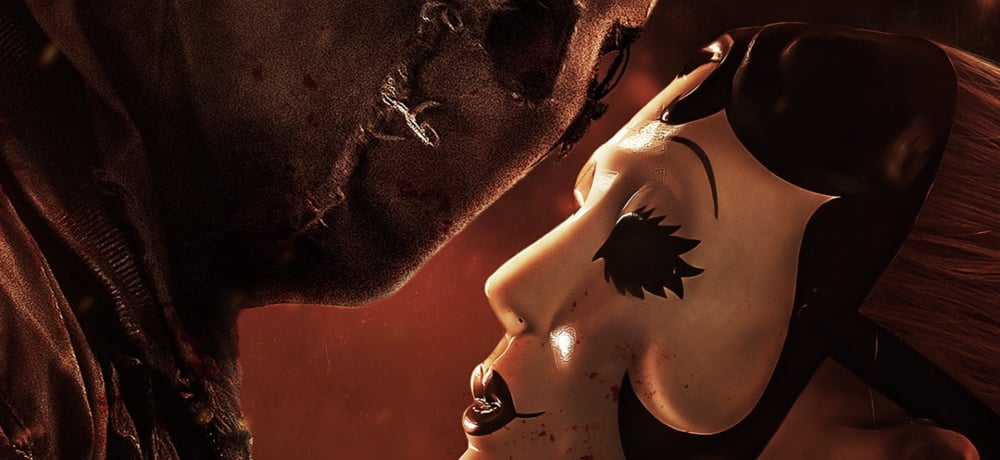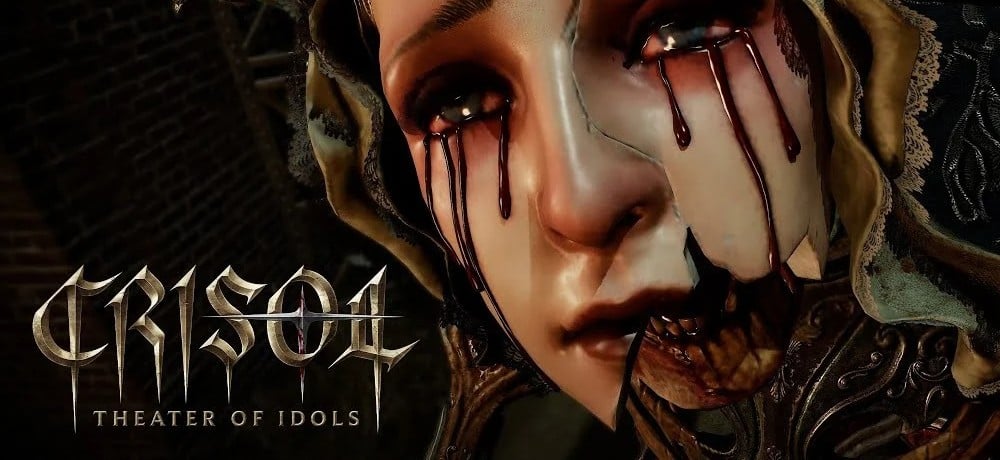





For the March installment of Blumhouse TV’s Into the Dark series that is exclusively running on Hulu, James Roday celebrates International Women’s Day with Treehouse, a story centered around a celebrity chef (Jimmi Simpson) who finds that he has much to atone for once he crosses paths with a group of women who are hellbent on making sure he answers for his previous transgressions and his horrendous attitude towards womankind.
Daily Dead recently caught up with Roday and producer/co-star Julianna Guill to chat about Treehouse, and they discussed their approach to the story and why they chose IWD as their theme for their Into the Dark installment, why it was important to collaborate with numerous women both in front of the camera and behind the scenes as well, and more.
Treehouse is currently streaming exclusively on Hulu.
James, it was great to see you back directing again for this, and I’d love if both you and Julianna could talk about this story, because obviously, there is a timeliness to it, and I was wondering if you could discuss your approach to capturing this moment that we're currently in right now.
Julianna Guill: Yes, absolutely. I know we can both speak to this. Jumping in first, I'll say that, yes, we are reflecting on something that happened in this character, but the overarching thing here is that it was a pattern of behavior that continued throughout his lifetime. And it's a very specific kind of person who ends up creating a life that is littered with these instances that no one ever held him accountable for. And so they grew, and grew, and grew, and they became who he is. So that's the character we are talking about. And in terms of the conversation, James and I both feel like we're at the very beginning of this conversation, and it's being part of the mainstream conscience that's being created, and many people are joining it. So we're excited to participate in this way.
James Roday: Yes, I would echo everything that Juliana said, and we've been in this thing together from the very beginning, and we've had a lot of conservations about how, and why, and which direction, and how we wanted to participate in this conversation, and what message we wanted to put out there. And for my part, I just think it's important for dudes to recognize that now is the time to listen very carefully, and to take notes and to take cues. And that is the best way, I think, that we can be supportive right now. And that was what a lot of this process was about for me.
Was this a situation where Blumhouse came to you guys and said, "Hey, we want to work with you on a project.", or was this something that you went to Blumhouse and said, "Hey, we have this really great idea. What can we do with this?" I'm curious how this all came together.
James Roday: It was pretty serendipitous. Blumhouse came to us. They had, I think, three slots open still for their 12 installments. And they were fans of Gravy, God bless them, and they asked if we had anything for March, June, or July, I believe, were the three months that were available. And Juliana and I had been kicking around this idea for years, frankly. We had about two thirds of what we thought was a pretty good movie, and then a third act that we just couldn't quite nail down. And International Women's Day is in March, and I was in Vancouver looking at a calendar, and I was like, "Holy cow, we could do this. We could finally figure out how to land this plane, and we can pitch this for March and International Women's Day." And that's what we did. And about 72 hours later, we had a green lit movie, based on a soft phone pitch and a one-page document. It's pretty insane.
Julianna Guill: It was insane.
Julianna, from your perspective, there's been a lot of discussion these days about putting women in more roles behind the camera, in front of the camera, and really focusing on female-driven stories. So, how great was it to be able to be involved with this? Because I love the fact that it starts off with this very specific male character and then evolved into something else, where we see the women getting really highlighted as everything progresses.
Julianna Guill: Yes, this was an experience of a lifetime for me. I was so fortunate to be working with James, and to be brought onto this at the level that I was. It was the first time I was able to produce a film, and I absolutely loved it. And I also, essentially, got to shadow James through the directing process and all of the prep, and that did include all of these wonderful interviews with department heads, and most of them ended up being women. It was really exciting to sit down with people and have the group that we ended up with be the strongest in the category, the strongest people we interviewed, and they all ended up being women for the most part.
So that was a really empowering experience, especially on a film with this message, to know that everyone working on it was there contributing to this experience in such a positive way and with such an investment. So that was very neat. And on top of it, from the female perspective, as a working mom, it was an enormous challenge for me. I was juggling an eight-month-old child, trying to take on this new role in my life, while I was taking on a new career in my life as well. So it was all around just a very empowering experience, and the fact that it coincided with a movie that's of this message was no coincidence.
James, for you, being able to surround yourself by all these women, was there anything that you took away from this experience, in terms of diving into this story, diving into these things that women are dealing with all the time, and also collaborating with them behind the scenes as well?
James Roday: The experience was—I mean, to call it enlightening would be a gross understatement. I feel like I learned so much, moviemaking and storytelling aside, just in terms of what is the message that women really are trying to put out there. And I think a lot of times we just don't understand as men. I think that the reason terms like "mansplaining" exist is because we don't listen enough. And I found myself learning to listen better and discovering along the way that things that I just assumed were wrong. Conclusions that I had drawn on my own were wrong.
It's why this movie had multiple endings that were wrong before I feel like we got it right. And that is all a testament to the collaboration and the incredible collection of women that we put together to design and help guide this movie. I also just really enjoyed watching a bunch of women department heads collaborate. I don't know if it's always like that, maybe we just got lucky, but it sure seemed effortless, and it sure seemed like there was just a ton of mutual respect flying around. And the results speak for themselves, and it was a beautiful thing to watch.
Also, I have to take a moment to talk about Jimmi, because he was an outstanding third partner in all of this for us. He was around from the very beginning as well. He helped craft this story. He was so supportive and willing to put himself onscreen in this role that quite frankly was a pretty terrible thing to dive into. And he did with a full heart, knowing that it needed to happen the way that it did, and that we needed him to do that as well as he did. So obviously, the movie doesn't work without him, and I am so grateful that he was willing to take it on.